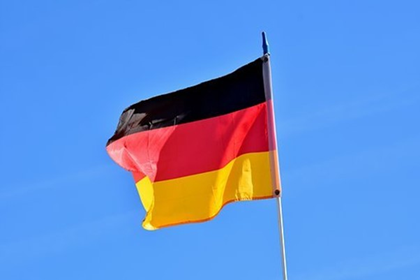-
DVV and the German Federation of Industrial Research Associations (AiF) add two more projects to their portfolio
Date posted:
-
-
-
Post Author
Greg Kelsall
-
-

Deutsche Vereinigung für Verbrennungsforschung (DVV), IFRF’s German National Flame Committee, is a member of the German Federation of Industrial Research Associations (AiF). This is the leading national organisation promoting applied research and development benefiting Germany’s small and medium-sized businesses. AiF provides public funds for research projects, with DVV carrying out such projects through its university and research organisation members. DVV’s industry members provide consultancy to the projects throughout their duration.
In addition to the DVV/AiF projects already reported by IFRF, together with the Zospe project described earlier this year, two further projects at the Ruhr-University Bochum have been added to the portfolio as described below:
- Influence of fines generation on the processes in domestic pellet boilers
During mechanical or pneumatic transport, wood pellets are subjected to different forms of mechanical stress, resulting in pellet breakage and the generation of small fragments (referred to as fines). These fines can have a negative impact on the pellet heating system operation, as compaction of fines can block screw conveyors or may lead to increased particulate matter emissions. The influence of fines and smaller pellet fragments on the combustion process has not been investigated so far and is, therefore, the focus of numerical and experimental investigations in this project.
The goal of this project is to determine the influence of fines depending on the feeding method (side feed, underfeed, overfeed stoker) and operating conditions (primary and secondary air distribution) on the combustion of wood pellets, specifically burning rate, CO emissions and particulate emissions. The evaluation will not only consider the absolute quantity of fines in the fuel bed, but also examine the effect of local inhomogeneity in fines concentration induced by the feeding process.
A comprehensive investigation is being conducted using model particles (wooden spheres) and wood pellets in a lab-scale batch reactor, supplemented by experiments carried out in three different (side feed, underfeed, overfeed) commercial pellet boilers. Additionally, to gain a deeper insight into the underlying processes occurring within the fuel bed, DEM/CFD simulations will be used.
The results will allow the feeding system, the combustion chamber and the operating parameters to be optimised. The entire supply chain of the pellet industry including pellet manufacturers, pellet suppliers, component manufacturers as well as boiler manufacturers will benefit from the project’s results, as the preceding transport steps ultimately determine the fines content in the combustion process. This will enable conclusions regarding the permissible fines production at each step for trouble-free operation of the combustion process.
Funding Period: January 2023 – June 2025
Funding Agency: German Federation of Industrial Research Associations (AiF)
Project Number: 22588
Research Organisation: German Flame Research Committee (DVV eV)
Research Institution: Ruhr-University Bochum Institute of Energy Plant Technology, Universitätsstraße 150 44780 Bochum, Germany
Contact: Martin Schiemann
- CO2 reduction in the cement industry by combined utilisation of hydrogen and refuse-derived fuels
The use of green H₂ holds potential for the energy-intensive cement industry to further reduce CO₂ emissions in the future. However, green H₂ is currently not yet competitive compared to fossil fuels in terms of economics. In addition, there are considerable scientific and technical gaps in the understanding of H₂ utilisation in the cement industry, which need to be closed for the low-risk and successful introduction of H₂ technology. The present research project is intended to make an important contribution to this.
The first step is to determine what technical knowledge and economic conditions must be available in order to make CO₂-neutral process heat generation with H₂ competitive to fossil fuels in Europe. In particular, the potential and limits of the combined use of H₂ and refuse-derived fuels (RDF) in rotary kilns in cement plants will be investigated with regard to changes in process conditions and product quality. Based on an analysis of the necessary infrastructural and safety measures, possible concepts for H₂ deployment are then examined. For this purpose, 3D CFD simulations are automatically coupled with a closed-loop process model, which simulates the change in clinker qualities as a function of the process parameters. A final technical and economic evaluation will provide cement plant operators with a decision-making aid for the use of H₂.
The expected research results offer German SMEs in the energy-intensive sectors (such as the cement and lime industries) as well as supply-chain SMEs, plant engineering or engineering service providers, with a major increase in knowledge in the application of hydrogen as a fuel. In addition, the outcome of the project will make it possible to open up the H₂ market of the cement industry to SMEs of (especially renewable) energy and hydrogen producers.
Funding Period: June 2022 – November 2024
Funding Agency: German Federation of Industrial Research Associations (AiF)
Project Number: 22406
Research Organisation: German Flame Research Committee (DVV eV)
Research Institution: Ruhr-University Bochum , Institute of Energy Plant Technology, Universitätsstraße 150, 44780 Bochum, Germany
Contact: Martin Schiemann
